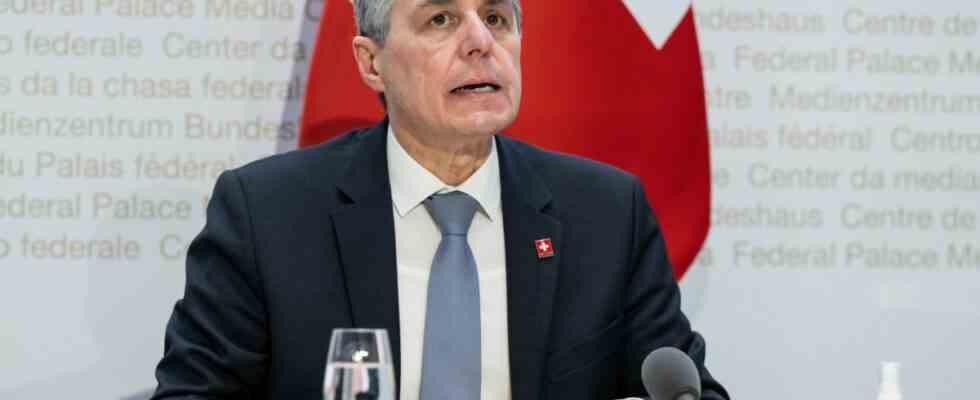Switzerland has experience as a postwoman. For more than 100 years she has been offering her “good offices” to other states, acting as a mediator, initiating discussions or as a substitute ambassador when countries have broken off diplomatic relations. For example, it currently represents the interests of the USA in Iran, Iran in Egypt or Georgia in Russia and vice versa.
Such a protecting power mandate would now like to take over in the case of Ukraine. The country severed ties with Russia after the war of aggression began in February. As the Swiss Foreign Ministry recently announced, it “actively” offered its good offices to both parties at the beginning of the war. Negotiations on a protecting power mandate have now been concluded with Kyiv: Ukraine would therefore like Switzerland to represent its interests in Russia, which means that it would take on part of its diplomatic and consular duties in Moscow.
This was also confirmed by the Ukrainian ambassador in Bern in an interview last week: Numerous Ukrainian children and civilians have disappeared or been deported to Russia. “We want our children and citizens back.” Ukraine needs Switzerland’s help for this.
Russia doesn’t want it
But it looks as if that won’t work in this important conflict of all places – because Russia doesn’t want to. The Moscow Foreign Ministry recently made clearthat Switzerland no longer considers itself neutral in this war and that a protecting power mandate for Kyiv in Moscow is therefore out of the question. In fact, Russia had already put the Confederation on a list of “unfriendly” states in March, because Switzerland has regularly adopted EU sanctions against Russia since then. “It is unclear how a country that behaves in this way is even able to offer mediation, representation and other good offices,” a spokesman for Moscow’s foreign ministry said, according to the Russian news agency TASS.
On Monday, the Swiss Ministry of Foreign Affairs conceded that Russia must give its consent for the protecting power mandate to come into force. They have “taken knowledge” of the position of the Foreign Ministry. But: “Discretion is a crucial element in order to be able to provide good services.” Therefore, no further information would be given at the moment.
Switzerland is on a turbulent journey of self-discovery
Apparently, Bern does not want to give up hope that the mandate might still work out. That’s not surprising. Since the war in Ukraine, Switzerland has been on a very turbulent journey of self-discovery. Is it still neutral if it supports economic sanctions? Are there any alternatives to positioning yourself in the Western camp, or would that be economic and political suicide? What can neutrality, which is strongly anchored in the people, achieve in these times, what is it still worth?
One thing is certain: Switzerland has so far not been in demand as an intermediary, neither in terms of personnel nor as a location. The Ukraine reconstruction conference in Lugano at the beginning of July was also not considered a particularly great success. Instead, the country irritated its partners several times – for example with the initial hesitation on the issue of sanctions, the ongoing trade in raw materials with Russia or the ban on passing on armaments from Switzerland to Ukraine. Again and again the country had to explain where it actually stands.
In this situation, it would be a great success for Foreign Minister and Federal President Ignazio Cassis if both warring parties commissioned Switzerland to protect their interests. Bern would finally have proof that the Swiss restraint in this war ultimately serves peace and understanding – and not primarily for their own benefit, as the Confederates are often accused of.

